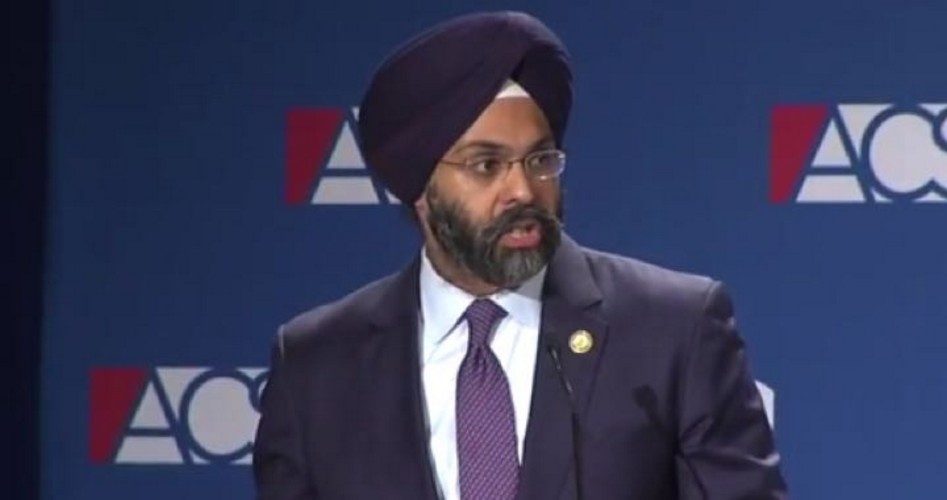
Cody Wilson, the founder of Defense Distributed (which provides firearm-related software for 3D printers), was delighted when the Department of Justice relented last July in its attempt to shut him and his company down. Without fanfare the DOJ not only settled with Cody and his company, it agreed to pay a large part of his legal fees as well.
Cody celebrated and then put his people back to work on developing more software for firearms enthusiasts, saying: “I have developers for anything and everything, some of the best talent in the world.… It’s all ready to go. I have interested stakeholders [and] a large network [of supporters who] care about what I do.”
New Jersey Attorney General Gurbir Grewal did not share in Cody’s victory. Instead he launched an attack on Wilson, his company, and the website that hosted his software. He frequently threatened Wilson publicly, declaring he would “come and get” him, and would “stop him” from exercising his newly resurrected First Amendment rights to freedom of speech over the Internet.
Grewal upped the ante on February 2 by sending this letter to Wilson’s company’s webhost Cloudfare:
This is a notice to Cloudflare that you are serving files consisting of 3D printable firearms in violation of NJ Stat. Ann. § 2C:39-9 3(l)(2). These files are accessible via Cloudflare’s New Jersey datacenter. You shall delete all files described within 24 hours or we will be forced to press charges in order to preserve the safety of the citizens of New Jersey.
Three days later Wilson’s company joined with the Second Amendment Foundation, the Calguns Foundation, and several other pro-gun, pro-Second Amendment, pro-Constitution groups in suing Grewal for violating his First Amendment rights. Wilson thought the matter was settled back in July, but Grewal disagreed.
The nut of Wilson’s complaint against Grewal appears on page 38 of his 62-page lawsuit, which states:
Grewal’s conduct subjects the Plaintiffs to an unconstitutional abridgement of First Amendment freedoms; an unconstitutional infringement of Second Amendment rights; an unconstitutional violation of the right to equal protection of the laws; an unconstitutional deprivation of liberty and property without due process of law; an unconstitutional violation of the Commerce Clause; and regulation by way of state laws that are preempted by federal law.
Wilson himself boiled the issue down to this: “This is a state politician telling a host in California and a national CDN (content delivery network) service that they are guilty of a speech crime in New Jersey based on the public content they’re merely republished on the … internet.”
Grewal defended his grievous overreach by declaring that, under New Jersey’s law passed in November that targeted Wilson and his company, it is now a crime for “a person to distribute by any means, including the internet … digital instructions in the form of computer-aided design files or other code of instructions … that may be used to program a three-dimensional printer to manufacture or produce a firearm, firearm receiver, magazine, or firearm component.”
This, in effect, is a nationwide limit on the First Amendment as a means to infringe on Second Amendment rights. As Declan McCullough explained at Reason:
As a practical matter, because the New Jersey law prohibits the distribution of firearm-manufacturing information to any “person in New Jersey,” it’s effectively a national ban. It imposes New Jersey’s idiosyncratic views on firearm manufacturing instructions (and the First and Second Amendments) on the entire nation.
Gunsmiths in Idaho and Montana are unlikely to be delighted at having Grewal dictate what they’re allowed to do online.
In addition, plans can be used for purposes other than manufacturing, including simulation or modeling, making the law even broader than it might seem at first glance.
The Second Amendment Foundation (SAF) explained why they were assisting Wilson in his suit against Grewal:
The lawsuit contends that after New Jersey lawmakers passed the new statute last November, Attorney General Grewal censored the plaintiffs’ free speech rights by threatening to jail them or anyone else that violates a section of the law that criminalizes distribution of digital instructions that may be used to produce a firearm with a three-dimensional printer.
SAF’s Executive Vice President Alan Gottlieb said, “This isn’t about firearms — it’s about freedom of speech. If Attorney General Grewal can suppress the sharing of technical information about the production of firearms components using modern technology, what else might he, or another attorney general choose to suppress at some future date if he or she doesn’t like it?”
It’s also about the Second Amendment. Grewal seeks to infringe on rights guaranteed by it to citizens by limiting their ability to exercise them through his grievous assault on the First.
Image of Gurbir Grewal: Screenshot of a youtube video by the American Constitution Society
An Ivy League graduate and former investment advisor, Bob is a regular contributor to The New American magazine and blogs frequently at LightFromTheRight.com, primarily on economics and politics. He can be reached at [email protected].
Downloads of 3D-Printed Firearms Increase After Judge Tries to Stop Them
Printing 3D Firearms and Accessories Now Protected as Free Speech



